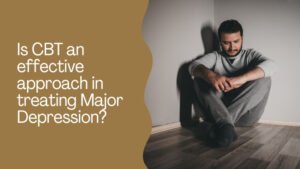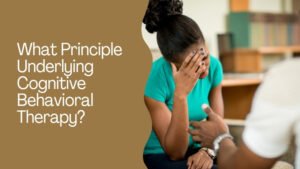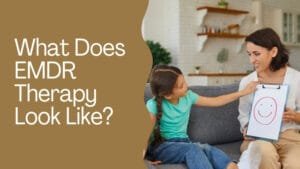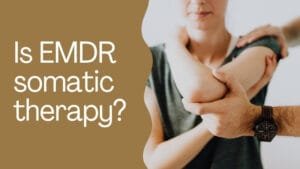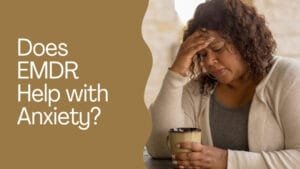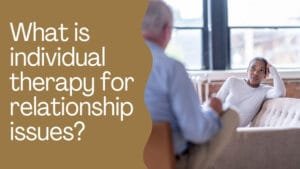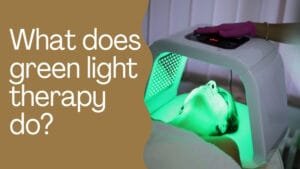Let’s be real, being a teen today is tough. Between school stress, social life drama, and nonstop screen time, it can feel overwhelming. Sometimes the best way to hit pause...
Read MoreResources
Explore helpful mental health resources at Yaqub Counseling. Our Resources Page offers valuable articles, self-care tips, therapy guides, and support options to help you on your wellness journey. Find trusted information on anxiety, depression, therapy approaches, and more.
Insights, Tips, and Expert Advice
Blog
Explore in-depth articles on various topics, providing valuable insights, expert opinions, and practical tips to help you stay informed and make better decisions.
How Can Dialectical Behavior Therapy Help People With PTSD?
Post-traumatic stress disorder (PTSD) can deeply affect how a person thinks, feels, and responds to the world. It often follows a distressing or life-threatening event and can bring symptoms such...
Read MoreWill cognitive behavioral therapy help me surpass depression?
Depression is more than just feeling sad or having a bad day. It can be a deep emotional struggle that affects your daily life, relationships, and ability to enjoy things...
Read MoreIs CBT an effective approach in treating Major Depression?
Major Depressive Disorder (MDD), commonly referred to as major depression, affects millions of people worldwide. Characterized by persistent feelings of sadness, hopelessness, fatigue, and a loss of interest in daily...
Read MoreWhat Principle Underlying Cognitive Behavioral Therapy?
If you’ve ever struggled with anxiety, depression, or even just everyday stress, there’s a good chance you’ve heard of Cognitive Behavioral Therapy (CBT). But what makes this therapy approach so...
Read MoreDoes dialectical behavior therapy treat schizophrenia?
For people with schizophrenia, a complicated mental disorder marked by delusions, hallucinations, disordered thinking, and emotional dysregulation, dialectical behavior therapy, or DBT, has become a viable therapeutic option. Although DBT...
Read MoreWhat do people with Bipolar Disorder think of DBT?
Cognitive behavioral therapy (CBT) is the foundation of dialectical behavior therapy (DBT), a type of psychotherapy. To better treat suicidal people with borderline personality disorder (BPD), Marsha M. Linehan created...
Read MoreWhat therapy is more helpful, CBT or DBT?
When it comes to mental health treatment, two of the most commonly recommended therapies are Cognitive Behavioral Therapy (CBT) and Dialectical Behavior Therapy (DBT). While both are evidence-based and effective...
Read MoreDoes Cognitive Behavioral Therapy help autistics?
Key Takeaways: Autism Spectrum Disorder is a lifelong neurodevelopmental medical condition that affects communication, behavior and social interaction. As the understanding of autism evolves, so does the approach to treatment...
Read MoreWhy does CBT not work for me?
Cognitive Behavioral Therapy (CBT) has long been recognized as one of the most effective, evidence-based approaches in the treatment of various mental health conditions, including anxiety, depression, post-traumatic stress disorder...
Read MoreHow do I choose the right therapist for individual therapy?
Choosing the right therapist is a key step in starting individual therapy, and it’s important to find someone who is professionally qualified, experienced with your specific concerns, and a good...
Read MoreHow effective is CBT for social anxiety?
Overcome Social Anxiety Disorder (SAD) with Cognitive Behavioral Therapy (CBT). Proven methods to manage fear, embarrassment & regain social confidence.
Read MoreWhat is cognitive behavioral therapy (CBT)? How does it work?
CBT operates on the premise that distorted or unhelpful thinking patterns contribute to emotional distress and maladaptive behaviors.
Read MoreWhat is Individual Therapy and How Does It Work?
Individual therapy is a form of counseling where a person works one-on-one with a licensed therapist to address emotional, psychological, and behavioral concerns.
Read MoreQuick Answers to Common Questions
FAQs
What is the difference between LMHC and LMFT?
LMHC (Licensed Mental Health Counselor) and LMFT (Licensed Marriage and Family Therapist) are both licensed mental health professionals, but they differ in their training, treatment approach, and areas of specialization....
Read MoreCan You Request a Psychological Evaluation for Child Custody?
Yes, a psychological evaluation can be requested during a child custody case. These evaluations help the court understand the mental and emotional fitness of each parent and ensure decisions are...
Read MoreCan EMDR Help with OCD?
Yes, EMDR (Eye Movement Desensitization and Reprocessing) can help some people with Obsessive-Compulsive Disorder (OCD) — especially when their symptoms are linked to past trauma, anxiety, or distressing life experiences....
Read MoreHow does creativity work with time management?
Creativity and time management can support each other when balanced correctly — especially for individuals managing mental health. While creativity often feels spontaneous, it can thrive within well-structured routines that...
Read MoreHow to Relax Your Mind from Stress
Stress affects how you think, feel, and function. Mental stress can come from work pressure, personal challenges, or constant digital overload. If left unmanaged, it may lead to anxiety, poor...
Read MoreDoes insurance cover couples therapy?
Insurance coverage for couples therapy can vary widely depending on your individual plan, insurance provider, and the reason for seeking therapy. In general, insurance is more likely to cover couples...
Read MoreHow to overcome trust issues in a relationship?
Trust issues in a relationship can create emotional distance, anxiety, and conflict. Rebuilding trust is possible, but it requires effort from both partners. Here’s a detailed, step-by-step approach grounded in...
Read MoreIs red light therapy bad for your eyes?
Red light therapy is generally considered safe for the eyes when used appropriately, but direct and prolonged exposure to high-intensity red or near-infrared light can potentially cause discomfort, eye strain,...
Read MoreWhat Are the Obvious Signs of Health Anxiety?
Health anxiety, formerly known as hypochondria, is a condition where a person becomes excessively worried that they are—or will become—seriously ill. Even when medical evaluations show no cause for concern,...
Read MoreWhen Does Couples Therapy Not Work?
Couples therapy can be a powerful tool for healing, but it’s not always successful. It may not work when the underlying issues are too severe, when one or both partners...
Read MoreCan plants affect mental health?
Yes, plants can positively affect mental health. Research and clinical studies have shown that spending time around plants — whether indoors or in nature — can reduce stress, lower anxiety,...
Read MoreCan You Faint from a Panic Attack?
In most cases, you cannot faint from a panic attack. Although panic attacks can feel overwhelming, they rarely cause actual fainting. Why You Usually Don’t Faint from a Panic Attack...
Read MoreCan trauma cause memory loss?
Yes, trauma can cause memory loss. Traumatic experiences — whether emotional, psychological, or physical — can significantly affect how the brain stores and retrieves information. People who have experienced trauma...
Read MoreWhat is considered cheating in a relationship?
Cheating in a relationship occurs when one partner violates the boundaries or agreements of emotional or physical exclusivity, breaking the trust that forms the foundation of the relationship. While definitions...
Read MoreWhy Is Change Necessary for Personal Growth?
Change is essential for personal growth because it creates opportunities for transformation, learning, and self-discovery. Here are key reasons why: 1. It Pushes You Out of Your Comfort Zone Growth...
Read MoreWhat is the best natural therapy for sleep apnea?
The best natural therapy for sleep apnea often involves lifestyle changes that reduce airway obstruction and support healthy breathing patterns during sleep. While natural remedies may not completely replace medical...
Read MoreIs Acupuncture a Natural Therapy?
Yes, acupuncture is considered a natural therapy. It is a drug-free, non-invasive treatment that uses fine, sterile needles to stimulate specific points on the body. Rooted in Traditional Chinese Medicine...
Read MoreCan Couples Therapy Rebuild Trust After Infidelity?
Yes, couples therapy can help rebuild trust after infidelity by offering a safe and structured environment where both partners can openly process the betrayal, explore underlying issues, and begin the...
Read MoreWhat Does EMDR Therapy Look Like?
EMDR (Eye Movement Desensitization and Reprocessing) therapy is a structured form of psychotherapy designed to help people process and heal from trauma, anxiety, and emotional distress. It’s best known for...
Read MoreIs EMDR somatic therapy?
No, EMDR (Eye Movement Desensitization and Reprocessing) is not classified as somatic therapy, but it can involve somatic experiences as part of the therapeutic process. What is EMDR? EMDR is...
Read MoreWhen does chronic pain become too much?
Chronic pain becomes too much when it starts to interfere with your daily life, mental health, relationships, or ability to function. This includes situations where: The pain persists for more...
Read MoreDoes EMDR Help with Anxiety?
Yes, EMDR (Eye Movement Desensitization and Reprocessing) therapy can help reduce anxiety, especially when that anxiety is connected to distressing memories, unresolved trauma, or overwhelming experiences. Though EMDR is widely...
Read MoreCan weed cause anxiety or panic attacks?
Yes, marijuana (weed) can cause anxiety and panic attacks in some individuals. While many people use cannabis to relax or reduce stress, it can have the opposite effect in certain...
Read MoreWho to Talk to About Family Problems?
When you’re experiencing family problems, it can be difficult to know who to turn to. The best step is to talk to a licensed mental health professional who specializes in...
Read MoreWhy do I always think, “Don’t trust anyone”?
The persistent thought, “Don’t trust anyone,” is often a sign of emotional self-protection. Many people who experience this mindset have gone through events that made them feel unsafe, betrayed, or...
Read MoreHow to solve relationship problems without breaking up
Solving relationship problems without breaking up is possible — and often healthier — when both partners are willing to understand each other, communicate effectively, and commit to working through challenges...
Read MoreHow Long Does EMDR Take?
Eye Movement Desensitization and Reprocessing (EMDR) therapy typically takes 6 to 12 sessions, but the exact duration varies based on the individual and the nature of the trauma. Each session...
Read MoreCan Therapy and Medication Work Together to Treat Anxiety?
Yes, therapy and medication can work together to treat anxiety, and combining both approaches often provides the most effective solution. Here’s why: 1. How Therapy Helps with Anxiety Therapy, particularly...
Read MoreHow is individual therapy different from group therapy for adults?
Individual therapy involves a private, one-on-one session between you and a licensed therapist. This format allows for highly personalized treatment, where the therapist focuses solely on your specific mental health...
Read MoreIs cutting off your family good therapy?
Cutting off your family is not a substitute for therapy, but it can be a supportive part of a healing journey — especially when the family environment is emotionally unsafe...
Read MoreHow do I know if I need individual therapy as an adult?
Individual therapy can be beneficial for adults experiencing various emotional, psychological, or behavioral challenges. Here are some key indicators that you might need therapy: 1. Persistent Emotional Distress If you...
Read MoreCan Couples Therapy Save a Failing Relationship?
Yes, couples therapy can be a powerful tool in saving a failing relationship, but its effectiveness depends on several key factors. Here’s how it works: 1. Identifying Root Causes Couples...
Read MoreWhat Is a Child Custody Evaluation?
A child custody evaluation is a formal assessment conducted by a licensed mental health professional, such as a psychologist or social worker, to assist the court in determining the most...
Read MoreWho can benefit from Emotionally Focused Individual Therapy?
Emotionally Focused Individual Therapy (EFIT) is a powerful therapeutic approach designed to help individuals connect with their emotions, understand their internal experiences, and create lasting personal change. It is rooted...
Read MoreWhy am I so hard on myself?
If you often find yourself thinking, “Why am I so hard on myself?” — you’re not alone. Many people struggle with inner criticism, harsh self-judgment, and feelings of not being...
Read MoreHow long to use red light therapy on face?
The recommended time for red light therapy on the face is typically 10 to 20 minutes per session, used 3 to 5 times per week. However, the exact duration may...
Read MoreShould You Do Individual Therapy Before Couples Therapy?
Yes, in many cases, individual therapy before couples therapy can be beneficial — but it’s not always required. It depends on your unique situation, the challenges in the relationship, and...
Read MoreWhy Do Couples Go to Therapy?
Couples go to therapy to improve their relationship, better understand each other, and work through challenges with the help of a professional. Many people think couples therapy is only for...
Read MoreWhat is individual therapy for relationship issues?
Individual therapy for relationship issues is a form of psychotherapy where a person works one-on-one with a licensed mental health professional to explore and resolve difficulties that affect their personal...
Read MoreWhat to Expect from Couples Therapy?
Couples therapy is a collaborative process that helps partners improve their relationship through guided conversations, emotional insight, and practical tools. Whether you’re facing communication issues, trust concerns, recurring arguments, or...
Read MoreIs couples therapy worth it?
Yes, couples therapy is often worth it. It provides a safe and structured environment where partners can better understand each other, work through difficult emotions, and learn healthier ways to...
Read MoreWhat does green light therapy do?
Green light therapy is a form of light treatment that uses specific wavelengths of green light to promote healing, reduce pain, and improve overall well-being. It has gained attention in...
Read MoreWhy is therapy good for everyone?
Therapy is helpful for everyone because it provides a safe, non-judgmental space to talk, reflect, and grow — not just during difficult times, but also when you’re simply looking to...
Read MoreHow long does individual therapy take?
Most individual therapy programs last between 8 and 20 sessions, but the exact duration depends on your specific goals, the complexity of the issue, and your progress in therapy. Types...
Read MoreWhat is Functional Family Therapy?
Functional Family Therapy (FFT) is an evidence-based therapeutic approach designed to address behavioral, emotional, and relational challenges within families. This therapy is particularly beneficial for families with adolescents facing problems...
Read MoreWhat is co-therapy in The Family Crucible?
Co-therapy in The Family Crucible refers to the therapeutic model where two clinicians — Dr. Carl Whitaker and Dr. Augustus Napier — work together in the same therapy sessions with...
Read MoreWhat is Strategic Family Therapy?
Strategic Family Therapy (SFT) is an approach to therapy that focuses on resolving specific problems within family relationships by altering unhealthy patterns of interaction. It was developed in the 1970s...
Read MoreWhy is Internal Family Systems therapy (IFS) gaining popularity now?
Internal Family Systems (IFS) therapy is gaining momentum in the mental health field because it offers a powerful, compassionate framework for understanding the human psyche. At its core, IFS views...
Read MoreWhat is Marriage and Family Therapy?
Marriage and Family Therapy (MFT) is a specialized form of psychotherapy that focuses on helping couples and families build healthier relationships and improve how they function as a unit. It recognizes...
Read MoreHow does therapy change your relationships with family and friends?
Therapy can significantly improve your relationships by helping you understand yourself more clearly, communicate more effectively, and set healthier boundaries. As you grow emotionally, your interactions with family and friends...
Read More




